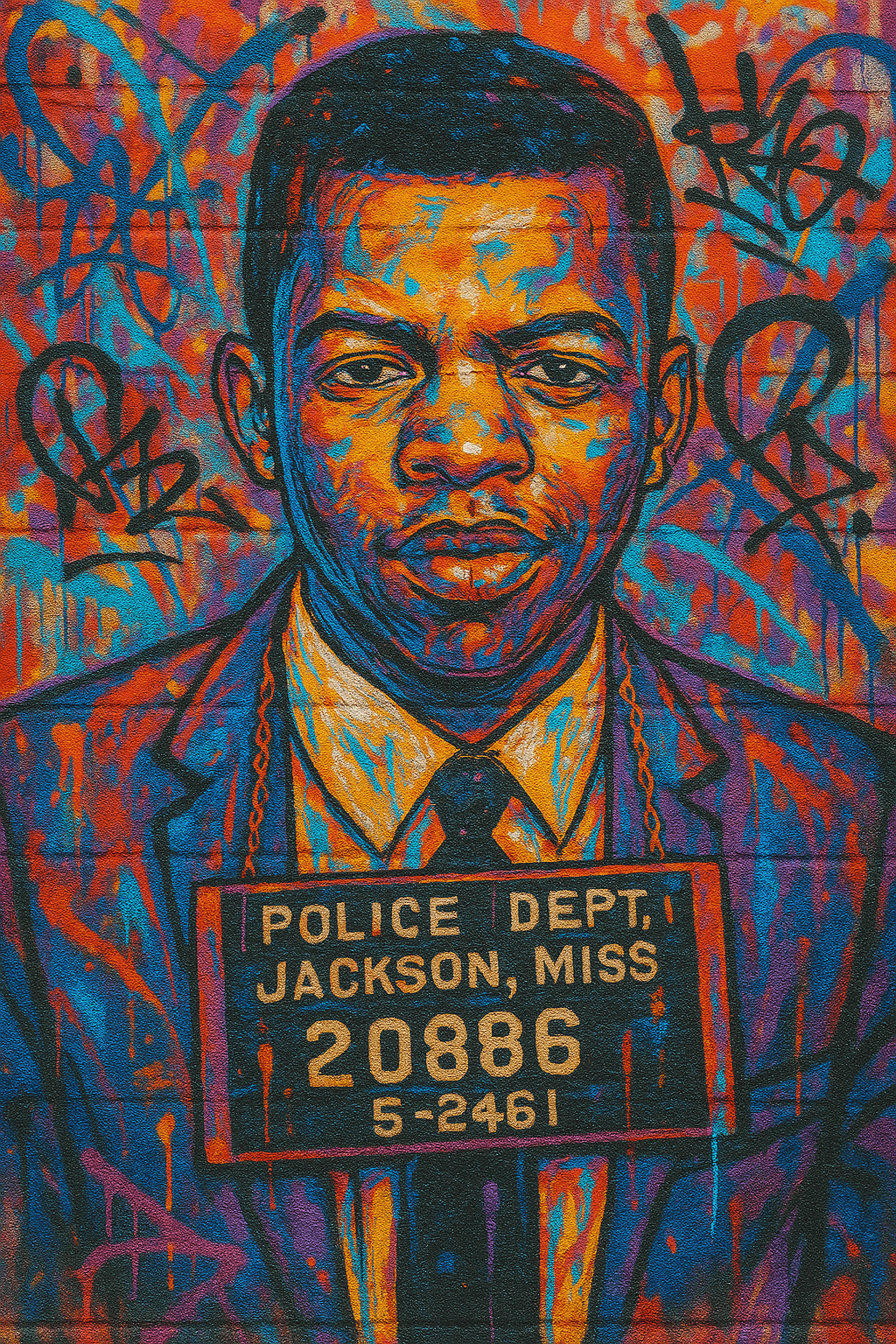IN Focus: John Lewis (February 21, 1940 – July 17, 2020)
John Robert Lewis was a lifelong warrior for justice—first as a student activist and freedom rider, later as the moral compass of the U.S. Congress. Born in 1940 to sharecroppers in Alabama, Lewis dedicated his life to the cause of civil rights, nonviolent resistance, and what he famously called “good trouble.”
As a young leader of the Student Nonviolent Coordinating Committee (SNCC), he was the youngest speaker at the March on Washington in 1963, standing alongside Dr. King. But it was in Selma, Alabama, where Lewis became a national symbol of courage. On March 7, 1965—“Bloody Sunday”—he was brutally beaten by state troopers while leading marchers across the Edmund Pettus Bridge. A photo of his fractured skull would galvanize support for the Voting Rights Act.
From protest to politics, Lewis served over three decades in Congress representing Georgia’s 5th District, championing human rights, immigration reform, and justice for all. Until his final days, he continued marching, speaking, and reminding us that democracy is not a given—it must be fought for.
Honor the Legacy. Wear the Story. Grab the "John Lewis is INerasable" t-shirt from our Legacy Collection—honor history and celebrate resilience.
INerasable: John Lewis' Legacy
Because he never gave up on the promise of America—even when America turned on him. John Lewis is because he believed that nonviolence was not weakness, but discipline. That progress wasn’t inevitable—it had to be demanded.
In an era where voting rights are once again under attack and historical memory is being politicized, Lewis’s voice still echoes like a guidepost. He didn’t just make history—he walked through it, bled on it, and left footprints for the rest of us to follow and to get into, as he called it, "Good Trouble."
He is INerasable because he represents the soul of the struggle and the spine of resistance. He taught us that change requires endurance, and that justice requires action.
Art IN Context: Graffiti and Defiant Legacy
John Lewis is rendered in a graffiti style—raw, immediate, and grounded in street-level rebellion. This form, born of resistance and self-expression, is a tribute to Lewis’s lifelong relationship with protest, direct action, and grassroots disruption.
Bold. Explosive color. Urban texture. His mug shot is layered with symbols of the Civil Rights Movement and modern street justice—linking the legacy of Selma to the chants of today. The graffiti medium reflects Lewis’s identity as both an insider and outsider—a Congressman who never stopped being an activist.
This art doesn’t ask for permission. It declares. Just like Lewis. He wasn’t afraid to confront power, to stand alone, to cross lines—literal and political—for the sake of progress.
In a nation that wants to sanitize its heroes, this rendering keeps John Lewis messy, human, brave, and bold. Forever spray-painted into our consciousness. Forever INerasable.
IN Depth: Resouces to Learn More
Books & Articles
- Walking with the Wind: A Memoir of the Movement – John Lewis (A powerful memoir chronicling Lewis’s journey from a sharecropper’s son to civil rights hero and Congressman.) ➔ https://www.simonandschuster.com/books/Walking-with-the-Wind/John-Lewis/9781476797717
- March Trilogy – John Lewis, Andrew Aydin, and Nate Powell (Award-winning graphic novel series recounting Lewis’s civil rights work.) ➔ https://www.penguinrandomhouse.com/books/560158/march-trilogy-slipcase-set-by-john-lewis-andrew-aydin-nate-powell/
- Carry On: Reflections for a New Generation – John Lewis (Posthumous release sharing inspirational lessons from Lewis’s life.) ➔ https://www.hachettebookgroup.com/titles/john-lewis/carry-on/9781538707128/?lens=grand-central-publishing
Archives
- John Lewis Congressional Biography – U.S. House of Representatives (Detailed public record of Lewis’s service and legacy in Congress.) ➔ https://history.house.gov/People/Listing/L/LEWIS,-John-R--(L000287)/
- John Lewis Collection –New York Public Library (Digital repository of Lewis’s speeches, photographs, and writings.) ➔ https://www.nypl.org/blog/2020/07/23/celebrating-john-lewis
Multimedia
- Good Trouble (2020) – CNN/HBO Max Documentary (Comprehensive and intimate portrait of Lewis’s activism.) ➔ http://www.magpictures.com/johnlewisgoodtrouble/
- John Lewis: Get in the Way – PBS (Chronicles Lewis’s 50+ years of social justice activism.) ➔ https://www.pbs.org/program/john-lewis-get-in-the-way/
- John Lewis’ Final Words – NYT Video (Narrated op-ed published posthumously.) ➔ https://www.nytimes.com/2020/07/30/opinion/john-lewis-op-ed.html
Exploring Art Styles (Modern Muralism)
- History of Mural Art – Widewalls (Survey of how murals have served as tools for political and community storytelling.) ➔ https://www.widewalls.ch/magazine-category/graffiti-street-art-history
- Modern Art Overview – The Art Story (Contextualizes muralism within 20th and 21st century movements.) ➔ https://www.theartstory.org/definition/modern-art/
- PBS American Masters – Mural Artists Redefining Public Space (Short profiles of Black muralists creating community-centered works.) ➔ https://www.pbs.org/video/chalk-riots-creative-magic-from-sidewalk-art-to-revival-umgi/
IN Protest. IN "Good Trouble". INerasable.


